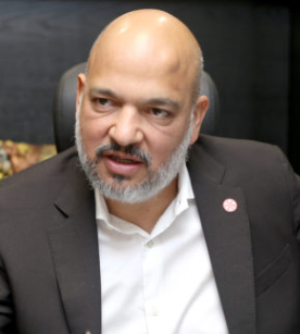KATHMANDU, May 30: Economic analysts and private sector actors have welcomed the government’s move for facilitating various domestic productions to make the economy self-reliant through the annual budget for 2022/23 announced on Sunday. However, they have expressed skepticism on the effective implementation of the budget due to its inflated size. Republica talked to a few of them to seek their opinions on the new budget. Excerpts:

Shekhar Golchha,
President, Federation of Nepalese Chambers of Commerce and Industry (FNCCI)
The budget has largely accommodated the demands of the private sector. The government’s plan to provide collateral-free loans to small and medium industries and the provision to provide seed money to the startups are among the positive sides of the budget.
Overall, the budget is satisfactory despite the larger expectation of the private sector that it will incorporate even more programs to provide reliefs to the sectors that are facing severe problems of liquidity crisis and unfavorable balance of payments.
CACN draws govt's attention to taming inflation


Vishnu Kumar Agrawal,
President, Confederation of Nepalese Industries (CNI)
The budget is industry- and development-friendly. Apart from the provisions to materialize the ‘Make in Nepal’ campaign, the threshold for land holding, allowing leasing land for 50 years to operate industries, to promote public-private-partnership in industries and flexibility for the foreign direct investment are praiseworthy.

Professor Shiva Raj Adhikari,
Head, Central Department of Economics, Tribhuvan University
The budget is a populist and election-focused one rather than the one to address the actual economic problems that the country is facing. Although the government has talked about promoting agricultural production and industries, there is no proper connection of these areas to the forward and backward linkages.
The government’s decision to raise the salaries of civil servants along with an inflated size of budget for next fiscal year will trigger inflation and trade deficit. The increased size of the budget at the time of shrinking financial resources will lead to a huge fiscal deficit that will adversely affect the trade deficit, which the government has underlined to reduce by controlling the ballooning imports. Increasing consumption will not help achieve a high economic growth target of 8 percent; rather it is investment that will boost the economic growth rate. But there is very little scope in the budget to boost investment.

Prof Ram Prasad Gyanwaly
Economist
The budget seems to please the voters through the introduction of populist programs. At a time when the country is reeling under an economic crisis, it was expected that the government would address the ongoing problem. However, the main strength of this budget is it has emphasized a self-reliant economy through the promotion of a number of areas related to domestic productions.
The inflation target of seven percent is difficult to maintain. On the one hand, the private sector’s expenditure has increased due to elections while on the other, the government itself has inflated the size of the budget. The budget has considered the improvement of the external sector’s performance only ‘taken for granted.’










































